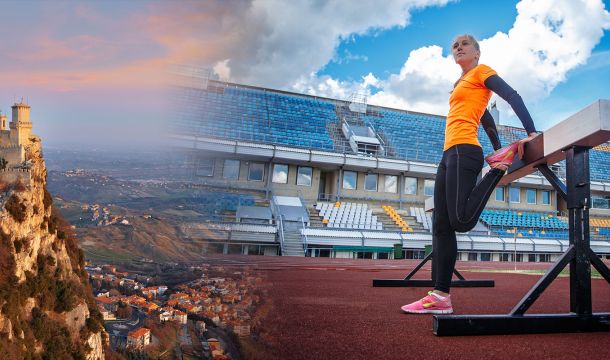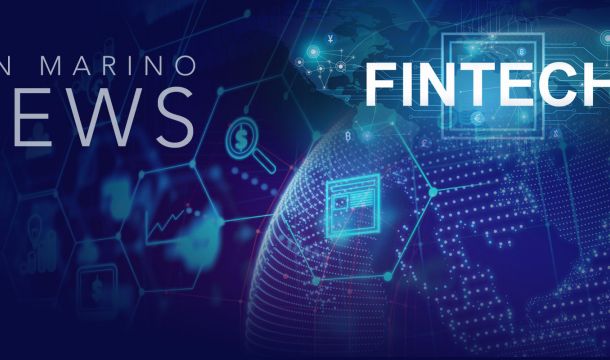Sandbox regulations in San Marino
In implementation of Article 1, paragraph 11 of Law 22 December 2023 n.194, the law regulates the methods of carrying out activities useful for the implementation of pilot projects aimed at the innovative development of the economic sector.
Authorization power of the Congress of State
The Congress of State exercises the authorization power for the launch of the pilot project by resolution, on the basis of the procedures and methods established.
In the context of carrying out the activity referred to in the law, the Congress of State, pursuant to Article 1, paragraph 11 of Law n.194/2023, may adopt delegated decrees and sandbox regulations, including in derogation from current legislation.
The Congress of State, in granting the authorization, has the power to impose limits and conditions for the implementation of the pilot project, as well as to establish obligations for the promoter of the project itself.
The authorization granted by the Congress of State has a maximum validity of twenty-four months.
In the event that the Congress of State grants an authorization with a duration of less than twenty-four months, the promoter has the right to request an extension, with a reasoned request, of the experimental project within twenty-four months.
Delegated decrees and sandbox regulations
The delegated decrees and sandbox regulations are regulatory instruments specifically dedicated to authorized pilot projects, according to the provisions of the law.
The delegated decrees and sandbox regulations:
- may provide provisions to regulate new matters, define the conditions and methods of carrying out activities, including innovative ones, and with the possibility of derogating from current legislation;
- have a validity equal to the pilot project trial and in any case not exceeding twenty-four months.
At the end of the trial period and no later than twenty-four months, the following provisions shall apply.
The provisions in force in the Republic of San Marino for the protection of health, the environment, cultural and landscape assets, work or the provisions on criminal matters may not, under any circumstances, be derogated. The mandatory constraints deriving from international obligations cannot be violated or circumvented.
Examination Committee
The Examination Committee is established for the evaluation of sandbox pilot projects.
The Examination Committee is composed of:
- the Secretary of State for Industry, Crafts and Commerce or his delegate, who chairs it;
- the Secretary of State for Foreign Affairs or his delegate;
- the Secretary of State for Finance and Budget or his delegate;
- the Director of the Economic Activities Office.
The meetings of the Examination Committee are valid with the presence of the absolute majority of its members. The decisions of the Examination Committee are adopted by open vote and by a majority of those present. In the event of a tie, the President’s vote prevails.
The Review Committee is convened by the President at least five days before the date set for the meeting.
The Review Committee presents to the State Congress an annual report on the progress and results of the authorized project or projects, including requests for implementation, derogation or regulatory or procedural exemption, requested for the purposes of the rapid and safe development of the experimental activity. This report must not contain any element considered confidential by the promoter.
Requirements for promoters
In order to obtain authorization, promoters must have the following requirements:
- if natural persons, they must reside in the Republic of San Marino or in a Member State
of the European Union;
- if legal persons, they must be registered in the Register of Companies of the Republic of San Marino or of a Member State of the European Union;
- if foreign subjects, they must be in possession of a specific authorization to operate in the Republic of San Marino pursuant to the Delegated Decree March 14, 2024 n.50.
The promoter must not be an Ineligible Entity pursuant to Article 1, paragraph 1, number 8) of Law n.47/2006 and subsequent amendments
If the pilot projects are promoted by the Congress of State, the direct procedure applies.
Pilot project requirements
The pilot project, for the purposes of obtaining authorization, must meet the following minimum requirements:
- the technology, product, service or process tested must be innovative and must
demonstrate potential for technical, economic or commercial feasibility, or interest in pursuing objectives of general interest or in enriching technical or scientific knowledge;
- the experiments must not jeopardize the safety of people, animals and things and
must adequately protect against any risks to health and the environment, in compliance with applicable legislation.
Request
The promoters must submit a specific request to the Secretariat of State for Industry, Crafts and Commerce, through the UO Office of Economic Activities.
The request is subject to the payment of a fee, as compensation for the costs of service, investigation and presentation of the same, equal to Euro 5,000.00 (five thousand/00), which must be paid virtually, through the payment in cash of the amount to the UO Ufficio del Registro e Conservatoria.
This fee, to be paid within thirty days of the submission of the application, is always due in full and does not give rise to reimbursement even in the event of a negative outcome of the application itself. The stamp duty relating to the documents produced and issued in this administrative procedure, including the application, is paid with the payment of the aforementioned amount.
Failure to pay the fee, in the manner and within the timeframes established, determines the impossibility of processing the case. After sixty days from the submission of the application, failure to pay the fee will result in the rejection of the application.
The application must contain at least the following elements:
- information on the promoter and any project manager, as well as any partners involved, such as personal data, participation, description of the company and all elements useful for identifying the promoter and the related partners;
- a detailed description of the pilot project, its objectives, the technologies and functionalities tested, any location of implementation already identified, and the financing for it intended;
- the declaration that the pilot project meets the requirements;
- the duration of the project, a preliminary implementation schedule, the terms for the conclusion of the experimental activity;
- the times of the preliminary and prodromal activity, contextual and subsequent to the development of the project, including any terms for construction, use, implementation, assembly, dismantling, disposal of tools or equipment and anything else necessary for the performance of the activity in the event of success, failure, suspension orinterruption of the same;
- the identification of possible risks in the implementation of the project, which may, in particular, lead to its interruption, and the related mitigation or prevention tools, as well as the technical and financial elements that demonstrate the ability of the promoter and any responsible party to complete it;
- the conditions for carrying out the experimentation which must necessarily include: compliance with the applicable legislation; tutoring, inspection, monitoring and supervision by the Examination Committee; the preparation of test reports by the promoter with information to be defined including the results of the tests, the obstacles identified and the proposals to overcome or mitigate them; the possibility of sharing information in compliance with the protection of intellectual property, business secrets and personal data, as well as the security of information classified by a competent entity and in accordance with the legal or regulatory provisions applicable to it;
- proposals for monitoring indicators that allow the assessment of the concrete progress and concrete evolution of the project;
- any conditions for sharing results and feedback.
Authorization procedure
The Examination Committee is responsible for carrying out the preliminary investigation of the applications submitted within and no later than thirty days from the date of receipt of the same.
The deadline may be interrupted in the event of a request from the applicant, by the Examination Committee, for clarifications or additions. In the event of interruption of the preliminary investigation, the deadline starts again from the receipt of the requested elements or from the expiry of the deadline assigned for the response, and in any case no later than sixty days from the date of first submission of the application. Failure by the applicant to submit clarifications and additions within the indicated timeframe will result in the rejection of the application.
The examination activity by the Examination Committee includes the analysis of the formal requirements of the application and a preliminary analysis of the admissibility of the pilot project.
The Examination Committee, following the examination activity, draws up a report containing its own reasoned opinion regarding the possible acceptance or rejection of the application. The report is forwarded to the Congress of State for the relevant determinations.
The Congress of State, having deemed the project worthy of acceptance, authorizes the Examination Committee to proceed to the next phase of in-depth analysis.
During the in-depth analysis, the Examination Committee may avail itself of the support and expertise of all the Secretariats of State, Offices, bodies or subjects deemed competent. The in-depth analysis activity may have a variable duration depending on the characteristics of the projects, in any case not exceeding three months. If deemed necessary, the Examination Committee may request further information from the proponent. Failure by the applicant to provide the information within the time limit indicated for the response will result in the rejection of the application.
At the end of the in-depth analysis, the Examination Committee reports to the State Congress for the purpose of obtaining authorization to launch the project.
The State Congress authorizes the pilot project on the basis of the Examination Committee’s report and any additional information in its possession, as well as on the basis of its compatibility with the economic and social needs of the Republic of San Marino.
The Examination Committee, having obtained authorization, appoints, on its behalf, a work team, composed of the offices or bodies competent for the subject matter, with the task of supporting the promoter in its activity during the experimental phase. The Examination Committee has the right to integrate the composition of the work team with technical personnel during the experimental activity, where necessary.
In order to continue the project, upon obtaining authorization, the proponent is required to pay a fee of €5,000.00 (five thousand/00) annual non-divisible, in support of the support activity assigned to the Administration, which must be paid virtually, by means of the payment in cash of the amount to the UO Registry Office and Conservation Office. Failure to pay the fee within fifteen days of obtaining the authorization will result in the forfeiture of the authorization provision. The right of the promoter to submit a new application remains unchanged.
Experimental phase
Following the adoption of the resolution authorizing the start of the pilot project by the Congress of State, the promoters may proceed with the start of the experimentation according to the provisions, indications and any limits and obligations indicated by the Congress of State and under the monitoring of the Examination Committee.
The promoter of the pilot project must send, at least every six months, to the Examination Committee, a report on the progress of the experiments.
The promoter, where the experimental activity involves third parties, has the obligation to inform the latter about the experimental nature of the activity carried out or the service or product provided.
The promoter has the obligation to comply with all the indications provided by the Examination Committee during the experimentation.
There is no obligation on the part of the promoter to provide all information that is identifiable as industrial secrets or confidential information, connected to the experimental and business activity. The duty of confidentiality remains on the part of the Congress of State, the Examination Committee and all subjects of the Administration, participating companies, bodies or collaborators who, in various direct or indirect capacities, are aware of the experimentation activity in the exercise of their functions.
The promoting entity may propose to the Examination Committee the further implementation, exemption or derogation from rules or procedures not provided for at the time of presentation of the delegated decree and the sandbox regulation.
The experimentation ceases upon expiration of the authorized period. In the event of failure to comply with the experimentation protocol and if there are risks to safety, health and the environment, or other risks relating to the sector being experimented, the experimentation is suspended until the conditions necessary for continuation are restored. Failure to restore the conditions will result in the cessation of the activity and the immediate revocation of the authorization.
At the end of the experimentation, the Secretary of State for Industry, Crafts and Commerce, also on the basis of the reports of the Examination Committee, following the evidence communicated by the promoter of the project, reports to the Congress of State and to the Great and General Council on the results of the delegated decrees and sandbox regulations also for the purpose of any regulatory changes.
Monitoring
The Examination Committee supports and monitors the activity carried out by the promoter and in particular takes into account all requests for implementation, exemption or regulatory or procedural derogation by the promoter, so that they are submitted to the Congress of State for the possible adoption of the delegated decree and the sandbox regulation.
Monitoring by the Examination Committee is also based on the monitoring indicators defined at the time of authorization. The monitoring indicators may be modified in agreement between the Examination Committee and the promoter during the trial, where necessary. The Review Committee, for proven needs of national interest, has the right to modify or integrate the aforementioned indicators.
The Review Committee, in order to ensure close monitoring of the activity carried out by the promoter, has the right to order and request strengthened control measures, also in relation to any risk areas of the experimentation.
With respect to the Review Committee, without prejudice to any other legally applicable supervisory and inspection obligations, the promoters of the project are required to:
- allow and facilitate free access to information relating to technologies, products, services and processes in the experimental phase, as well as the structures in which they are developed;
- provide all information and assistance necessary for the performance of monitoring and inspection functions;
- maintain a properly organised and updated archive, containing all relevant documents and records relating to to the tests carried out, including inspection reports and other relevant elements, under the conditions in which they can be made available for access and consultation of information by persons with powers of supervision and control over the trials.
Civil liability
Civil liability arising from the trial activity is the responsibility of the promoter, without prejudice to the right of recourse of the same against other subjects participating in the project.
Damaging events
The promoters must inform the Examination Committee within twenty-four hours, from the moment they become aware of a possible harmful event, in the context of the trials.
Without prejudice to the competences of other bodies, whenever accidents or incidents cause significant damage, the Examination Committee analyses the circumstances of the event and sends a technical report to the Congress of State regarding the state of the physical spaces, systems, networks and systems, as well as other relevant elements used by the promoter during the trials.
The provisions do not affect the other obligations regarding the notification of harmful events provided for by the current legislation.
Administrative pecuniary sanctions
Unless the act constitutes a crime, failure to cease or suspend the activity by the proponent entails the application of an administrative pecuniary sanction ranging from €300.00 (three hundred/00) to €30,000.00 (thirty thousand/00).
Administrative pecuniary sanctions may be challenged pursuant to Title II of Law no. 68/1989 and subsequent amendments.
WANT MORE INFORMATION?
Our studio is at your disposal to answer all your questions, clarify your doubts and support you in all the steps to realize your project.
News
Latest news in the Republic of San Marino.
Insights
Regulatory insights of a Fiscal, Administrative and Commercial nature in the Republic of San Marino
- Blockchain in San Marino
- Buying real estate in San Marino
- Esport a San Marino
- Fintech in San Marino
- Open a business in San Marino
- Production and testing of medicines
- Residence in San Marino
- San Marino Civil Aviation and Maritime navigation
- Taxation in San Marino
- Trade in San Marino
- Trademarks and patents in San Marino
- Trust in San Marino
More articles

Residence for Athletes in San Marino

Fintech in San Marino: Innovation, Regulation and Economic Impacts

